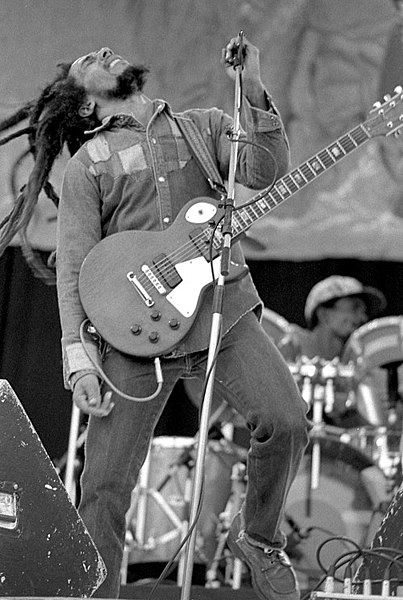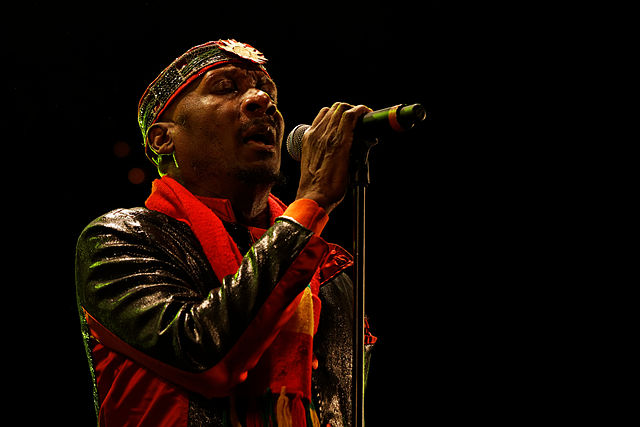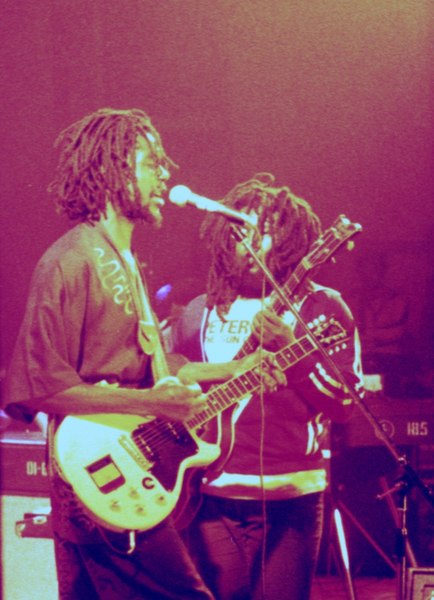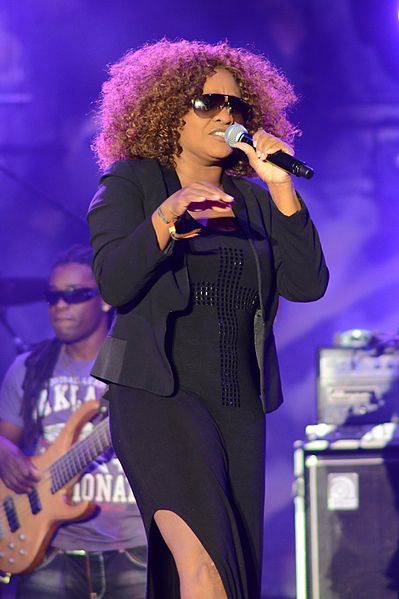Reggae is a music genre that originated in Jamaica in the late 1960s. The term also denotes the modern popular music of Jamaica and its diaspora. A 1968 single by Toots and the Maytals, "Do the Reggay", was the first popular song to use the word reggae, effectively naming the genre and introducing it to a global audience. While sometimes used in a broad sense to refer to most types of popular Jamaican dance music, the term reggae more properly denotes a particular music style that was strongly influenced by traditional mento as well as by American jazz and rhythm and blues, and evolved out of the earlier genres ska and rocksteady. Reggae usually relates news, social gossip, and political commentary. It is instantly recognizable from the counterpoint between the bass and drum downbeat and the offbeat rhythm section. The immediate origins of reggae were in ska and rocksteady; from the latter, reggae took over the use of the bass as a percussion instrument.
Reggae artist Bob Marley in 1980
Jimmy Cliff
Peter Tosh with Robbie Shakespeare, 1978
Tanya Stephens in 2014 at a German Reggae festival
Jamaica is an island country in the Caribbean Sea and the West Indies. At 10,990 square kilometres (4,240 sq mi), it is the third largest island—after Cuba and Hispaniola—of the Greater Antilles and the Caribbean. Jamaica lies about 145 km (90 mi) south of Cuba, 191 km (119 mi) west of Hispaniola, and 215 km (134 mi) south-east of the Cayman Islands.
Statue of Cristopher Columbus in St. Ann Parish
Henry Morgan was a Caribbean pirate, privateer, plantation owner and slaveholder; he had first come to the West Indies as an indentured servant, like most of the early English colonists.
Harbour Street, Kingston, c. 1820
Marcus Garvey, father of the Back to Africa Movement and Jamaica's first National Hero








